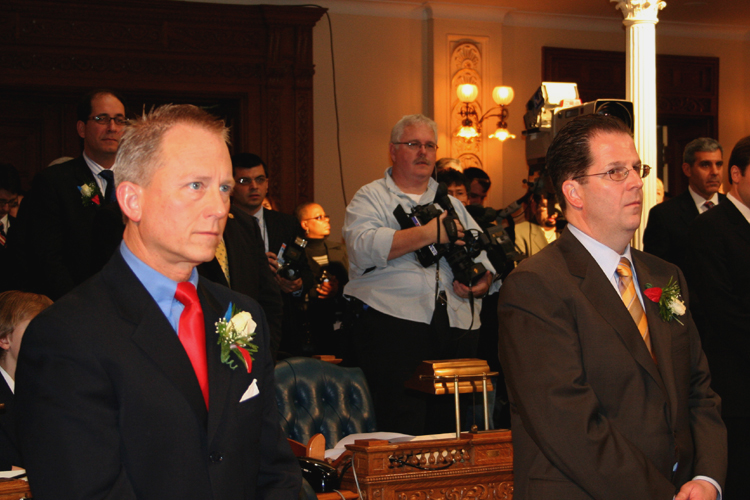
Measure Would Provide for Continued Operation of Successful UEZ Program
TRENTON – Legislation sponsored by Senators Jeff Van Drew and Brian Stack to overhaul the state’s Urban Enterprise Zone Program by implementing strict requirements that would increase accountability of participating municipalities was approved today by the Senate Community and Urban Affairs Committee.
The reform bill (S-2949) is intended to restart the successful UEZ program – which historically has recycled sales tax revenue back into the zones for economic development projects – by strengthening accountability measures and ensuring the focus of the program is to stimulate the economy and create jobs in financially distressed areas of the state. The centerpiece of the legislation would require that towns and cities create and submit to the state a five-year economic growth plan in order to continue participation in the UEZ program. The Department of Community Affairs would be responsible for assisting municipalities in developing the plans and for granting their approval.
“The urban enterprise program has been extremely successful in municipalities across the state, helping to create jobs and revitalize economically depressed areas,” said Senator Jeff Van Drew (D-Cape May/Cumberland/Atlantic). “While we know that this program is effective, there is no doubt that we can do better. Requiring towns and cities to submit an economic growth plan every five years, and providing increased involvement at the state level, will ensure we are meeting the goals of the program.”
Municipalities would be required to submit a new economic growth plan every five years, and to obtain the approval of the DCA for ongoing participation in the UEZ program. Three years into each five-year period covered by a growth plan, the department would be required to conduct an evaluation of the progress made by the municipality in meeting the plan goals. The DCA would use the information in determining whether to grant approval for the municipality to participate another five years in the program.
Businesses within the UEZ would be permitted to continue charging sales tax at half the state’s rate of 7 percent, with 50 percent of the sales tax revenue going to the state’s General Fund; of the additional 50 percent, 45 percent would go to an enterprise zone assistance fund and 5 percent would be used to fund the state’s cost of administering the program. Municipalities would apply to the DCA for funding for zone projects through a new online application process created under the bill. This application process is intended to expedite approval of UEZ projects funded through the zone assistance fund and to allow for project tracking.
“This program has done a tremendous amount of good for financially distressed cities which have historically used tax revenue generated within urban enterprise zones to jump-start economic development projects,” said Senator Stack (D-Hudson). “This bill allows the UEZ program to continue to aid towns and cities that are working to improve their downtowns, create jobs and stimulate the economy, but ensures they are held accountable for the funding they are provided.”
The Christie Administration last year retained a consulting firm to evaluate the UEZ program. Completed in February 2010, the analysis included a number of recommendations for enhancing the program. The bill would implement some of those recommendations, and is intended to restart the program by redirecting funding for local projects back into urban enterprise zones. In the last two state budgets, FY2011 and FY2012, the sales tax revenue collected by UEZ businesses has been diverted to the state’s General Fund.
The bill would require the DCA to report to the Governor and Legislature within two years of the bills effective date on the progress made by enterprise zones approved by the department for continued participation in the program.
The measure now heads to the Senate Budget and Appropriations Committee for consideration.

